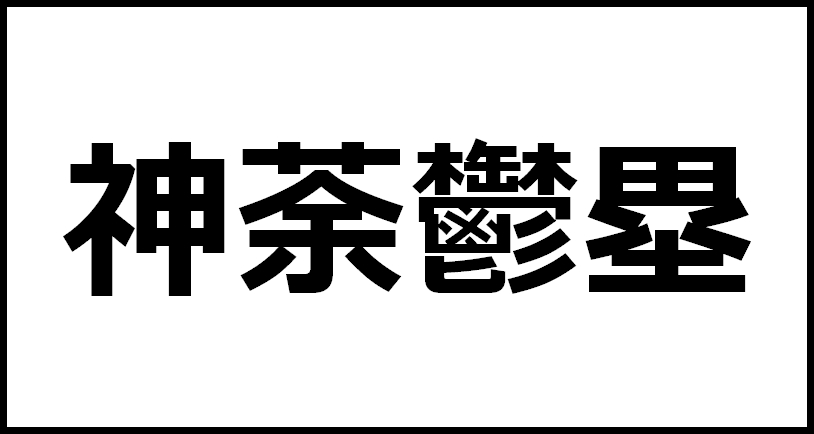神荼鬱塁について。四字熟語の神荼鬱塁の読み方や意味、英語や外国語での意味をまとめました。
神荼鬱塁について
神荼鬱塁の読み方・意味
| 四字熟語 | 神荼鬱塁 |
| 読み方 | しんじょうつりつ |
| カタカナ読み | シンジョウツリツ |
| ローマ字読み | shinjotsuritsu |
| 読みの文字数 | 8文字読みの四字熟語 |
| 頭文字 | 「し」から始まる四字熟語 |
| 構成する文字 | ・塁 ・神 ・荼 ・鬱 |
| 意味 | 門を守る神の名前。「神茶」と「欝塁」は門を守る神の兄弟の名前。門の守り神で、百鬼を支配していて、従わないものを虎に食べさせたということから、古代中国では二神と虎の絵を門にはって魔よけにしていた。神荼はしんだ・しんと・しんとうとも読み鬱塁はうつるいとも読む。 |
神荼鬱塁の意味(外国語)
神荼鬱塁の外国語での意味をまとめました。
| 英語 | The name of the god who guards the gate. “Kamicha” and “Utsuru” are the names of the brothers of the gods who guard the gate. It is the guardian deity of the gate, and since it rules over a hundred demons and feeds the tiger to those who do not obey it, in ancient China, paintings of the two gods and the tiger were placed at the gate as a talisman. Kanda is read as shinda, shinto, and shinto, and tsuru is also read as tsurui. |
| スペイン語 | El nombre del dios que guarda la puerta. “Kamicha” y “Utsuru” son los nombres de los hermanos de los dioses que custodian la puerta. Es la deidad guardiana de la puerta, y dado que gobierna sobre cien demonios y alimenta con el tigre a quienes no lo obedecen, en la antigua China, las pinturas de los dos dioses y el tigre se colocaban en la puerta como talismán. Kanda se lee como shinda, shinto y shinto, y tsuru también se lee como tsurui. |
| イタリア語 | Il nome del dio che custodisce il cancello. “Kamicha” e “Utsuru” sono i nomi dei fratelli degli dei che custodiscono il cancello. È la divinità custode del cancello, e poiché governa oltre un centinaio di demoni e dà da mangiare alla tigre a coloro che non gli obbediscono, nell’antica Cina, i dipinti dei due dei e della tigre venivano posti al cancello come talismano. Kanda viene letto come shinda, shinto e shinto, e anche tsuru viene letto come tsurui. |
| ポルトガル語 | O nome do deus que guarda o portão. “Kamicha” e “Utsuru” são os nomes dos irmãos dos deuses que guardam o portão. É a divindade guardiã do portão e, como governa mais de cem demônios e alimenta o tigre para aqueles que não o obedecem, na China antiga, pinturas dos dois deuses e do tigre eram colocadas no portão como um talismã. Kanda é lido como shinda, xintoísta e xintoísta, e tsuru também é lido como tsurui. |
| フランス語 | Il nome del dio che custodisce il cancello. “Kamicha” e “Utsuru” sono i nomi dei fratelli degli dei che custodiscono il cancello. È la divinità custode del cancello, e poiché governa oltre un centinaio di demoni e dà da mangiare alla tigre a coloro che non gli obbediscono, nell’antica Cina, i dipinti dei due dei e della tigre venivano posti al cancello come talismano. Kanda viene letto come shinda, shinto e shinto, e anche tsuru viene letto come tsurui. |
| 中国語 | 守门神的名字。 “Kamicha”和“Utsuru”是守门神兄弟的名字。 它是城门的守护神,掌管百妖,不服则食虎,故中国古代在城门上画有二神和虎图作为护身符。 Kanda 读作 shinda、shinto 和 shinto,而 tsuru 也读作 tsurui。 |
| 韓国語 | 문을 지키는 하나님의 이름. ‘가미차’와 ‘울루’는 문을 지키는 하나님의 형제의 이름. 문의 수호신으로 백귀를 지배하고 있었고, 순종하지 않는 것을 호랑이에게 먹게 했다는 점에서 고대 중국에서는 니신과 호랑이의 그림을 문에 꽂아 괴롭히고 있었다. 신소는 신다·신토·신토우도 읽고 울루는 우울하다고도 읽는다. |


